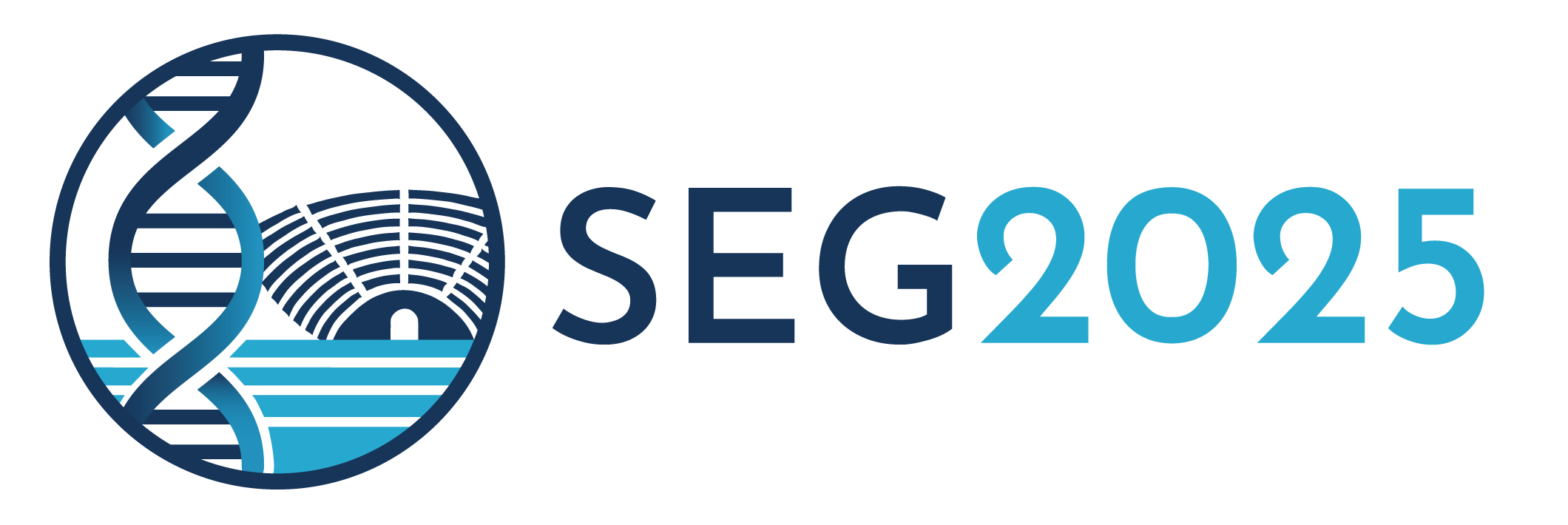Conferencia
Inaugural
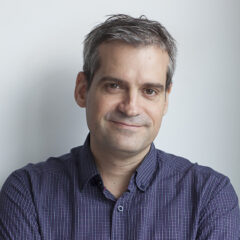
Dr. Toni Gabaldón is ICREA Research Professor jointly affiliated to the Institute for Research in Biomedicine (IRB) and the Barcelona Supercomputing Centre (BSC), where he leads the Comparative Genomics group (www.cgenomics.org). His research focuses on understanding underlying genomic bases of organismal adaptations, particularly in microbial organisms. He has developed and applied computational strategies to address relevant transitions such as the origin of eukaryotes, the emergence of novel fungal pathogens, or the acquisition of resistance by microbes during therapy. Dr. Gabaldón has received honors and awards such as the EMBO and American Academy of Microbioloy membership, the ERC starting and consolidator grants, and the Margaret Dayhoff award and is considered a highly cited researcher by clarivate analytics.
Genómica
.
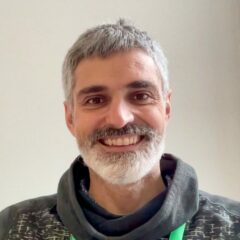
José M. Jiménez-Gómez is a Research Scientist and the leader of the «Adaptive Genetics and Genomics» group at CBGP in Madrid (UPM-INIA-CSIC). His team uses bioinformatics, molecular biology and genetics in plants to identify and characterize genes important for adaptation and domestication. He believes that these genes shaped by selection are crucial tools for ensuring future food security.
The «Adaptive Genetics and Genomics» team has a 13-year history in international institutes such as the Institut Jean-Pierre Bourgin, in Versailles (France); and the Max Planck Institute for Plant Breeding Research, in Cologne (Germany). José M. Jiménez-Gómez completed his postdoctoral research at UCDavis (US) and his PhD at CNB-CSIC (Spain). Their publication record includes articles in journals like Nature Genetics, PNAS, and The Plant Cell.
Salidas profesionales
de la genética
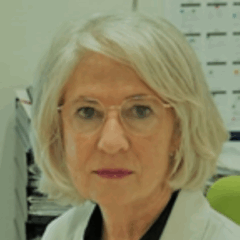
UNIVERSITY DEGREE
- PhD in Biology from the University of Murcia in 2008, with the grade of Outstanding cum laude. Thesis title: “Applications of Molecular Cytogenetics in the Diagnosis of Chromosomal Abnormalities.”
- Bachelor’s Degree in Biology (with honors) from the University of Murcia in 1984, with an overall grade of Outstanding.
Other Qualifications:
- Accreditation in Human Genetics. Awarded by the Spanish Association of Human Genetics (2004).
- Certification as a Health Biologist. Awarded by the General Council of Official Colleges of Biologists.
PROFESSIONAL ACTIVITY
Since joining the Center for Biochemistry and Clinical Genetics (CBGC) of the Murcian Health Service, in 1985, initially as a trainee and later as a Senior Health Specialist, I have primarily carried out clinical work in the field of clinical cytogenetics, both in prenatal and postnatal diagnosis and genetic counseling.
In 2000, I took on the role of Head of the Cytogenetics Unit at this Center until October 2014, when I was appointed Director, in addition to being responsible for the Quality Management System.
During these years, I have conducted, taught, and coordinated numerous continuing education courses, workshops, presentations at national and international conferences, and the organization of congresses and meetings, among other activities. This led to my accreditation in Human Genetics by the Spanish Association of Human Genetics in 2004.
I am a member of the Clinical Group Linked to CIBERER “Pediatric Medicine and Development”, the “Pediatric Research” group of the IMIB (Murcian Institute for Biosanitary Research Pascual Parrilla), and the CSUR and European Reference Center (ERN Guard Heart) of the Family Cardiopathies Unit at the University Clinical Hospital Virgen de la Arrixaca.
The research lines I have participated in have mainly been related to the diagnosis, characterization, and genetic counseling of chromosomal abnormalities associated with congenital defects, intellectual disabilities, and genetic diseases.
My doctoral thesis focused on the application of Molecular Cytogenetics techniques (FISH) for the diagnosis of chromosomal abnormalities, a technique that I developed in the laboratory. With the support of a regional research funding project, I helped implement the cytogenomics array-CGH technique as a routine diagnostic tool at the CBGC.
Among other teaching activities, I have been a professor in university master’s programs, a teaching collaborator in specialized healthcare training, and currently a tutor for curricular internships of students pursuing a degree in Biology and Biotechnology at the University of Murcia.
I have been a member of the board of the Spanish Association of Prenatal Diagnosis (AEDP) and belong to the Spanish Association of Human Genetics (AEGH), the European Cytogenetics Association (ECA), and the European Society of Human Genetics (ESHG).
Among other healthcare-related activities, I have participated as an Expert in the Delphi Panel for the Update of the Guide for Decision-Making on the Incorporation of New Genetic Tests in the National Health System (GEN Guide), in the development of the INTEGRATED PLAN FOR RARE DISEASES OF THE REGION OF MURCIA (as head of the workgroup in the Prevention and Early Diagnosis area), and in the clinical practice guide for the USE OF MICROARRAYS IN PRENATAL DIAGNOSIS, in accordance with the AGREE II protocol.
Additionally, I am part of the Expert Committee of the D´genes Information and Orientation Service and the Spanish Network of Rare Disease Experts (ER) of the IMPaCT-GENóMICA Project.
Since June 2022, I have been the Vice Dean of the Official College of Biologists of the Region of Murcia (COBRM), a representative at the plenary session of the General Council of Official Colleges of Biologists (CGCOB), and a member of the Health Commission of both associations.
Salidas profesionales
de la genética
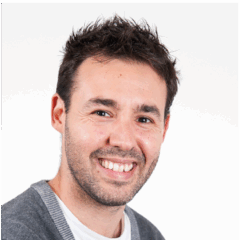
Juan Manuel Herrero, a veterinary medicine graduate, was born in Alicante (Spain) in 1983. After his graduation (University of Murcia, 2007) he joined the Genetic Area of the Animal Production Department in that University. There, he spent five years developing a robust research foundation in animal molecular genetics. His academic journey led to a PhD thesis Genetic Characterization of the Chato Murciano Pig (Murcia, 2012). In that summer of 2012, Juan Manuel moved to The Netherlands to continue his active collaboration with the Animal Breeding and Genomics Group (Wageningen University). There, he refined his genetic data analysis and researcher skills. JM Herrero’s completed a second PhD thesis Conservation genetics of local and wild pig populations: insight in genetic diversity and demographic history (The Netherlands, 2013) and 3 years as Postdoctoral Researcher (2012-2015).
Since 2015, he has been applying his expertise at the Pig Improvement Company, focusing on Genetic Services support to PIC customers.
Salidas profesionales
de la genética
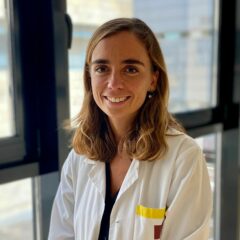
Mejora genética
animal
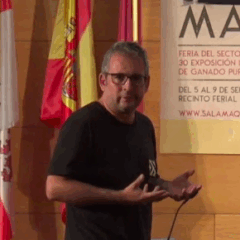
Citogenómica y dinámica
de cromosomas
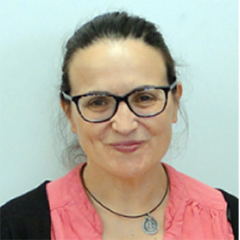
Dr. Ferrándiz is a cell and molecular biologist specializing in genomic instability and cell division. She completed her PhD at the University of Cantabria in 2007, focusing on the interplay between signals that promote and inhibit cell proliferation within the cell cycle.
During her postdoctoral research at Imperial College (2010–2016), she investigated the complex biological mechanisms that ensure accurate inheritance of genetic material during cell division, primarily focusing on regulating chromosome segregation during meiosis.
From 2017 to 2023, Dr. Ferrándiz worked as a Senior Research Fellow at the University of Warwick under the mentorship of Professor Steven Royle. There, she expanded her research on chromosome segregation in germ cells to investigate the origins of aneuploidy in cancer cells. Her work integrated her expertise in cell division and cancer biology to uncover a novel mechanism of aneuploidy driven by the dynamics of mitotic membranes.
Since late 2023, Dr. Ferrándiz has led her research group at the Center Research Center. Her team focuses on advancing the understanding of organelle dynamics during cell division, contributing to maintaining genome integrity.
Expresión génica
epigenética
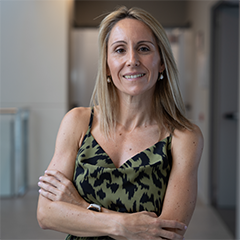
Since the beginning of my scientific career, I have been deeply interested in understanding cell differentiation and how its dysregulation leads to genetically complex diseases, particularly autoimmune diseases and blood cancers. During my PhD (CNIO, Madrid, Spain), I explored this from an epigenetic perspective, revealing for the first time the role of DNA methylation in the pathogenesis of autoimmunity (1-2). Later, during my postdoc at the Babraham Institute (Cambridge, UK), I demonstrated that spatial chromatin organization undergoes profound changes during hematopoiesis, which not only reflect differentiation trajectories but also enable large-scale interpretation of genetic susceptibility to disease. During this time, I also gained in-depth bioinformatic expertise to complement my wet-lab background (3-8).
In 2019, I joined the Josep Carreras Leukaemia Research Institute (IJC; Barcelona, Spain) as an independent group leader. My team integrates epigenetic and spatial chromatin organization insights, leveraging both experimental and computational approaches to deepen our understanding of hematopoiesis in health and disease (9-12).
My seminal contributions include pioneering demonstrations of the role of epigenetic deregulation in autoimmunity (1) (>750 citations), showcasing the power of gene promoter interactomes to reveal insights into the genomic regulatory mechanisms underlying diseases (4) (>1000 citations), the development of the Promoter Capture Hi-C (PCHi-C) method (4, 8), and its low-input version (liCHi-C) (10-11), as well as demonstrating the role of genome organization in preventing malignant transformation (12).
(1) Genome Res 2010*; (2) Mol Cancer Res 2011*; (3) Nat Genet 2015*; (4) Cell 2016*; (5) Mol Cell 2017*; (6) Genome Biol 2017*; (7) Nat Commun 2017*; (8) J Vis Exp 2018*#; (9) Nat Commun 2021#; (10) Nat Commun 2023#; (11) J Vis Exp, 2023#; (12) Nat Commun, 2024#; [* First author, #Corresponding Author]
Genética de
microorganismos
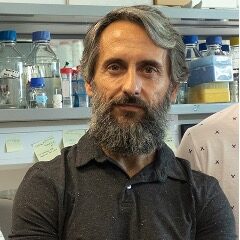
Diego obtained a Degree in Biological Sciences in 1999 and a PhD Degree in 2006 from the University of Malaga. After a postdoctoral training at the Harvard Medical School (2008-2011) he returned to Spain with a Ramón y Cajal fellowship. He is currently full professor of microbiology at the University of Malaga (since 2022).
His scientific interest has focused on the study of bacterial communities, specifically on the chemical nature of the extracellular matrix, and the ecological role of this molecular framework in the establishment of different trophic relationships.
Mejora genética vegetal
y biotecnología
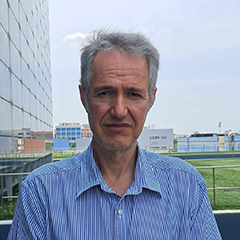
Jaime Prohens is Full Professor of Genetics and Plant Breeding at the Universitat Politècnica de València (UPV), where he leads research activities at the Institute for the Conservation and Improvement of Valencian Agrodiversity (COMAV). He obtained his PhD in Agricultural Engineering in 1997 and was appointed Full Professor in 2009. His research focuses on the genetics and breeding of Solanaceae crops, particularly tomato and eggplant, with emphasis on diversity analysis, genomics, phenomics, introgression breeding, quality traits, stress resistance, and crop evolution.
He has coordinated or participated as PI in over 50 research projects and contracts, including several from H2020 and Horizon Europe programmes. He has co-authored more than 200 papers in JCR-indexed journals, including publications in Science, PNAS, The Plant Journal, Journal of Experimental Botany and Horticulture Research, over 70 book chapters and technical publications, and has contributed to the development of several vegetable varieties. He serves as associate editor for several international journals and was senior editor of the Springer Handbook of Plant Breeding series. Jaime Prohens has been President of the European Association for Research on Plant Breeding (EUCARPIA), the Spanish Society for Horticultural Science (SECH), and has served on the board of the Spanish Society of Genetics (SEG). He was awarded the Doctor Honoris Causa title by the University of Agricultural Sciences and Veterinary Medicine of Cluj-Napoca (2012) and received the UPV Award for Outstanding Research Impact in Plant and Animal Sciences (2023).
Genética de
poblaciones
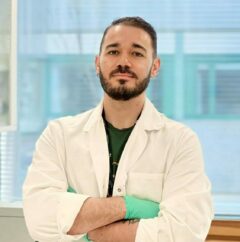
Genética
Humana.

Pablo Lapunzina es Profesor Titular de Pediatría y Genética Humana en Madrid, España. Jefe de Grupo de Investigación del Instituto de Genética Médica y Molecular del Hospital Universitario La Paz, Madrid, e Investigador Principal y Jefe de Grupo de Investigación del CIBERER.
Licenciado en Medicina por la Universidad de Buenos Aires, Argentina. Realizó su residencia como residente de pediatría en el Hospital de Niños de Buenos Aires, donde posteriormente fue Jefe de Residentes e Instructor. Posee un Máster en Genética Molecular y un Máster en Gestión Hospitalaria. Es especialista en medicina embriofetal. Obtuvo su doctorado en la Universidad de Buenos Aires. Es experto en Inteligencia Artificial del MIT (Instituto Tecnológico de Massachusetts, Boston, EE. UU., 2021).
Es autor de más de 400 artículos, 35 capítulos y 11 libros. Su trabajo se ha centrado en trastornos genómicos, síndromes de sobrecrecimiento, síndromes de retraso del crecimiento y síndromes de alteración de la impronta. Junto con su grupo de investigación y en colaboración con varios grupos internacionales, ha descrito casi 25 nuevas enfermedades y síndromes junto con la identificación de varios genes asociados a enfermedades.
Programa
| Horario | 8 de Julio | 9 de Julio | 10 de Julio | 11 de Julio |
|---|---|---|---|---|
| 07:00 - 08:00 | Running/beach | Running/beach | Running | |
| 08:30 - 09:00 | Inscripciones | |||
| 09:00 - 10:30 | Genómica | Genética de microorganismos | Divulgación y docencia | |
| 10:30 - 11:00 | Pausa café + Pósters | Pausa café | ||
| 11:00 - 12:30 | Salidas profesionales de la genética | Mejora genética vegetal y biotecnología | Conferencia de Clausura | |
| 12:30 - 14:00 | Mejora genética animal | Genética Poblaciones | ||
| 14:00 - 15:30 | Comida | |||
| 15:30 - 17:00 | Citogenómica y dinámica de cromosomas | Genética Humana | ||
| 17:00 - 18:30 | Expresión génica y epigenética | Asamblea SEG | ||
| 18:30 - 19:30 | Inscripciones | Conferencia Inaugural | Visita Teatro Romano | |
| 19:30 - 20:00 | Premio Nacional de Genética | Posters & Tapas | ||
| 20:00 - 20:30 | ||||
| 20:30 - 21:00 | Evento Social Opcional | Cena Congreso | ||
Martes 8 julio
18:30-19:30
19:30-20:30
Maite Roldán
20:30-21:00
Miércoles 9 julio
08:30- 09:00
Genómica
9:00-9:30
09:30-10:30
09:30-09:45
09:45-10:00
10:00-10:15
10:15-10:30
10:15-10:20
10:20-10:25
10:25-10:30
10:30-11:00
Salidas profesionales de la genética
11:00-12:30
Juan Manuel Herrero
Belén de la Morena
Mejora genética animal
12:30-13:00
13:00-14:00
13:00-13:15
13:15-13:30
13:30-13:45
13:45-14:00
13:45-13:50
13:50-13:55
14:00-15:30
Citogenómica y dinámica de cromosomas
15:30-16:00
16:00-17:00
16:00-16:15
16:15-16:30
16:30-16:45
16:45-17:00
16:45-16:50
16:50-16:55
16:55-17:00
Expresión génica y epigenética
17:00-17:30
17:30-18:30
17:30-17:45
17:45-18:00
Myelopoiesis and therapeutic strategies for Dyskeratosis
Congenita
18:00-18:15
Topoisomerase II
18:15-18:30
18:15-18:20
response
18:20-18:25
Rhizopus microsporus
18:25-18:30
Conferencia Inaugural
18:30-19:30
19:30-21:00
Jueves 10 julio
Genética de microorganismos
09:00-09:30
09:30-10:30
9:30-9:45
9:45-10:00
Salmonella Typhimurium in porcine hosts
10:00-10:15
Virus spread in Spain and Europe
10:15-10:30
10:15-10:20
Dimorphism in Mucor lusitanicus
10:20-10:25
resistant cells of Escherichia coli
10:25-10:30
gut microbiota
10:30-11:00
Mejora genética vegetal y biotecnología
11:00-11:30
11:30-12:30
11:30-11:45
response: an H₂O₂-mediated pathway for maintaining
sodium homeostasis in tomato (Solanum lycopersicum)
12:00-12:15
CRISPR toolbox
11:45-12:00
12:15-12:30
12:15-12:20
estudios de asociación genómica
12:20-12:25
12:25-12:30
between embryonic epidermis and shoot apical meristem
development.
Genética poblaciones
12:30-13:00
13:00-14:00
13:00-13:15
13:15-13:30
Adaptive Radiation of Canary Island Dysdera Spiders
13:30-13:45
in Culex pipiens
13:45-14:00
13:45-13:50
vulgaris population in the Balearic Islands
13:50-13:55
in Spain
13:55-14:00
14:00-15:30
Genética humana
15:30-16:00
16:00-17:00
16:30-16:45
diagnóstico de enfermedades raras
16:00-16:15
characterization solved by long-read nanopore sequencing- Relevance in genetic diagnosis
16:15-16:30
and craniofacial phenotypes with incomplete penetrance
16:45-17:00
16:45-16:50
diagnosed with Char syndrome
16:50-16:55
prothrombotic polymorphisms with antithrombin
deficiency: a new perspective to the Budapest 3 variant
